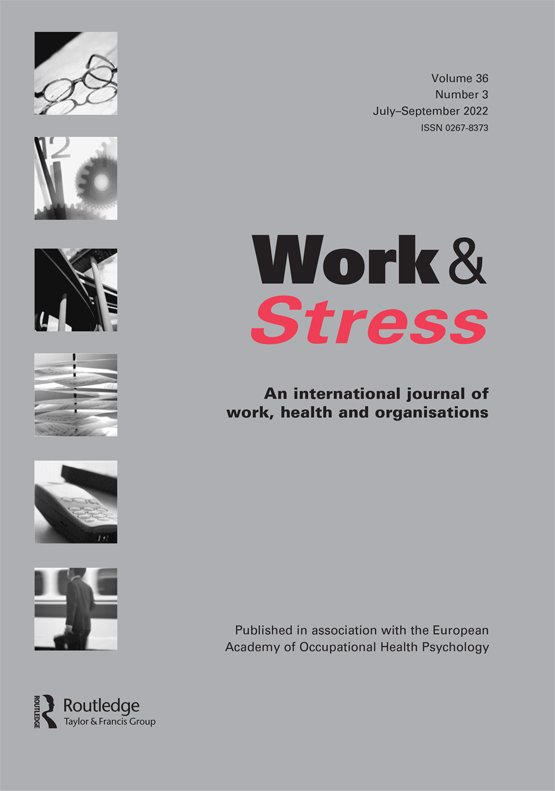Employees' experience of supervisor behaviour - a support or a hindrance on their return-to-work journey with a CMD? A qualitative study
Supervisors play an important role in supporting employees to return to work following sickness absence due to common mental disorders; stress, anxiety and depression, however, employees may not always feel supported. We examined employees' perceptions of their supervisors' attitudes and behaviours pre, during and following sickness absence due to common mental disorders, placing a particular focus on post-return. In a qualitative study, using purposeful sampling, we recruited and interviewed 39 returned employees up to four times. We identified three types of supervisor behaviours: the compassionate, the indifferent and the demeaning. Compassionate supervisors possessed empathy and communication skills, worked collaboratively to identify appropriate work adjustments and provided ongoing support and adjustment. Indifferent supervisors lacked the skills and motivation to support returning employees. They did what was required according to organisational policies. Demeaning supervisors lacked understanding and displayed stigmatising behaviour. The results extend our understanding of how supervisors may support returned employees in two ways: First, our results identified three distinct sets of supervisor behaviours. Second, the results indicate that it is important to understand return to work as lasting years where employees are best supported by supervisors making adjustments that fit the needs of returned employees on an ongoing basis.
Employees' experience of supervisor behaviour - a support or a hindrance on their return-to-work journey with a CMD? A qualitative study
- Date Published
- Mon, 14th Nov 2022
- Publisher
- Work & Stress, International Journal of Work, Health & Organisations. Taylor and Francis Online
- Author
- Yarker, J; Nielsen, K
- Reference
- Yarker, J., & Nielsen, K. (2022) Employeers
- Website
- https://doi.org/10.1080/02678373.2022.2145622
- Categories
- Keywords
- return to work, Adjustments, Facilitators, Barriers, HR, supervisor behaviour, support
Supervisors play an important role in supporting employees to return to work following sickness absence due to common mental disorders; stress, anxiety and depression, however, employees may not always feel supported. We examined employees' perceptions of their supervisors' attitudes and behaviours pre, during and following sickness absence due to common mental disorders, placing a particular focus on post-return. In a qualitative study, using purposeful sampling, we recruited and interviewed 39 returned employees up to four times. We identified three types of supervisor behaviours: the compassionate, the indifferent and the demeaning. Compassionate supervisors possessed empathy and communication skills, worked collaboratively to identify appropriate work adjustments and provided ongoing support and adjustment. Indifferent supervisors lacked the skills and motivation to support returning employees. They did what was required according to organisational policies. Demeaning supervisors lacked understanding and displayed stigmatising behaviour. The results extend our understanding of how supervisors may support returned employees in two ways: First, our results identified three distinct sets of supervisor behaviours. Second, the results indicate that it is important to understand return to work as lasting years where employees are best supported by supervisors making adjustments that fit the needs of returned employees on an ongoing basis.


